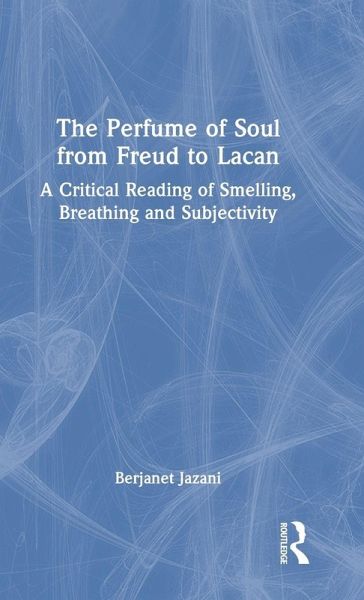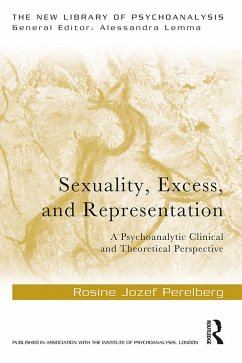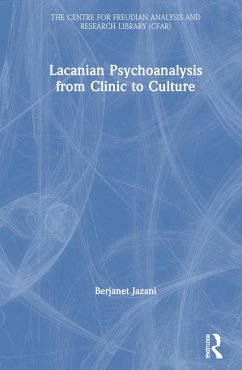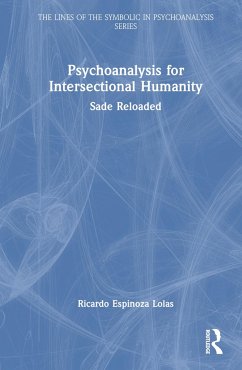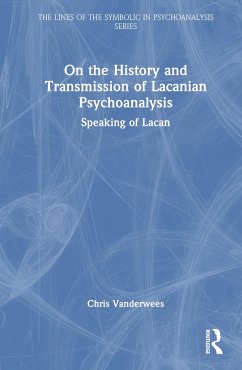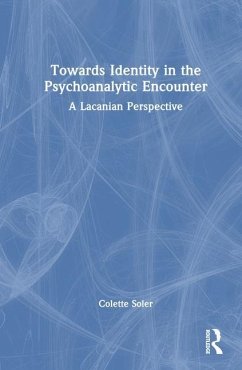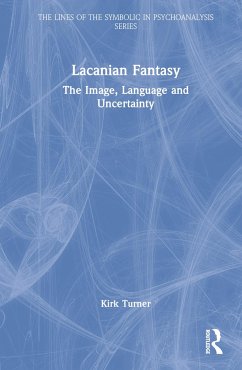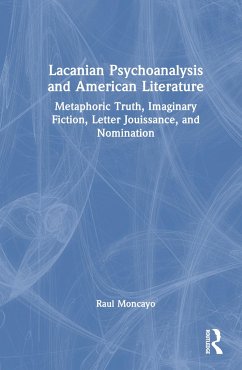Berjanet Jazani
Gebundenes Buch
The Perfume of Soul from Freud to Lacan
A Critical Reading of Smelling, Breathing and Subjectivity
Versandkostenfrei!
Versandfertig in 1-2 Wochen
Weitere Ausgaben:

PAYBACK Punkte
79 °P sammeln!





The Perfume of Soul from Freud to Lacan seeks to understand the human sense of smell and its marks on our subjectivity from a psychoanalytic perspective.
Berjanet Jazani is a medical doctor and practicing psychoanalyst based in London, UK. She is the president of The College of Psychoanalysts UK, clinical member of the Centre for Freudian Analysis & Research (CFAR), and the author of Lacanian Psychoanalysis from Clinic to Culture and Lacan, Mortality, Life and Language: Clinical and Cultural Explorations (both Routledge).
Produktdetails
- Verlag: Routledge
- Seitenzahl: 122
- Erscheinungstermin: 5. Juli 2024
- Englisch
- Abmessung: 222mm x 145mm x 10mm
- Gewicht: 295g
- ISBN-13: 9781032779034
- ISBN-10: 1032779039
- Artikelnr.: 70147994
Herstellerkennzeichnung
Libri GmbH
Europaallee 1
36244 Bad Hersfeld
gpsr@libri.de
This fascinating and highly original study puts smell back on the psychoanalytic map, drawing together beautifully case study, autobiography, developmental theory and conceptual analysis. Why has smell been neglected for so long despite being something that touches us all to the quick? Berjanet Jazani's arguments are compelling and the breadth of her examples impressive, as we follow her reflections on the earliest role of smell in the bond of baby and mother to the place of breath in adult sexual practices. Every chapter of this superb book opens up new questions, enriching psychoanalytic theory and inviting us to lift the veil of repression that has blocked exploration of this vital sensory pathway for so long. - Darian Leader,
Mehr anzeigen
Psychoanalyst, Author
At the risk of being outrageously cheeky I will say that Berjanet Jazani has a nose for sniffing out what has been lost and radically under-theorised by psychoanalysis, until now. Selecting from ancient and interdisciplinary texts and theorists as well as from the Freudian and Lacanian oeuvres, scanding clinical vignettes from her own practice as well as dipping into her personal experiences, Jazani challenges contemporary psychoanalysis to speak of an olfactory drive in the same breath as the scopic and invocatory drives and to consider with her what is smell, what is breath, and what is the status of perfume and scent for the speaking being, in memory and in mourning. With this work, we can say that Jazani restores the lost sense of smell to its rightful place, worthy, that is, of proper psychoanalytic scrutiny, and elevates olfaction convincingly for this reader to the status of the drive. - Carol Owens, Psychoanalyst, Dublin
Is there an olfactory drive, and if so, how does it work? By answering this question, Berjanet Jazani fills a huge gap in psychoanalysis' understanding of the undervalued sense of smell. Unlike other senses, olfactory perception requires a direct contact with the molecules that trigger chemical reactions in our brains. In a whiff, body and soul, brain and psyche, intermingle. This superb book full of arresting clinical examples puts us on the scent of an invisible mechanism that binds the aromas of the world to our unconscious. - Patricia Gherovici, psychoanalyst; author, Transgender Psychoanalysis
At the risk of being outrageously cheeky I will say that Berjanet Jazani has a nose for sniffing out what has been lost and radically under-theorised by psychoanalysis, until now. Selecting from ancient and interdisciplinary texts and theorists as well as from the Freudian and Lacanian oeuvres, scanding clinical vignettes from her own practice as well as dipping into her personal experiences, Jazani challenges contemporary psychoanalysis to speak of an olfactory drive in the same breath as the scopic and invocatory drives and to consider with her what is smell, what is breath, and what is the status of perfume and scent for the speaking being, in memory and in mourning. With this work, we can say that Jazani restores the lost sense of smell to its rightful place, worthy, that is, of proper psychoanalytic scrutiny, and elevates olfaction convincingly for this reader to the status of the drive. - Carol Owens, Psychoanalyst, Dublin
Is there an olfactory drive, and if so, how does it work? By answering this question, Berjanet Jazani fills a huge gap in psychoanalysis' understanding of the undervalued sense of smell. Unlike other senses, olfactory perception requires a direct contact with the molecules that trigger chemical reactions in our brains. In a whiff, body and soul, brain and psyche, intermingle. This superb book full of arresting clinical examples puts us on the scent of an invisible mechanism that binds the aromas of the world to our unconscious. - Patricia Gherovici, psychoanalyst; author, Transgender Psychoanalysis
Schließen
Für dieses Produkt wurde noch keine Bewertung abgegeben. Wir würden uns sehr freuen, wenn du die erste Bewertung schreibst!
Eine Bewertung schreiben
Eine Bewertung schreiben
Andere Kunden interessierten sich für




